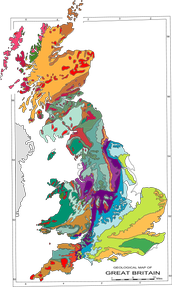 Despite the name, Geoffrey of Monmouth was probably French rather than Welsh. Around 1136, he became the first person to refer to Great Britain. It was political.
Despite the name, Geoffrey of Monmouth was probably French rather than Welsh. Around 1136, he became the first person to refer to Great Britain. It was political.
Until now, Britain meant modern day Wales, with an option on Cornwall too. Living on the Welsh borderland, the Norman elite were busily trying to bring Wales under their control by whatever means necessary.
By taking the name Britain and applying it to the whole of Albion, it blurred the borders between the British Welsh and the Norman English. It also placed very firm intentions upon bringing Scotland under England's rule.
In short, Geoffrey had done exactly what the Welsh tried to do over seven centuries before, but in reverse. The Welsh thinking had been, 'This is all our land. Foreigners go home!' The Norman thinking had been, 'This should all be one land, and we will control you.'
This was all very academic and not taken seriously at the time. Which was a shame, because it transpired to be precisely what was going to happen.
In Geoffrey's vision, Great Britain would include all of the countries of old Albion - Cornwall, England, Scotland and Wales. A millennium later, it does.
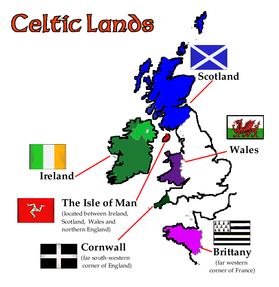 It was called 'great' to differentiate it from 'little' or 'lesser' Britain. That's Brittany, in France, now. It's populated by those Celts who fled south across the channel, as refugees from the invading Anglo-Saxons.
It was called 'great' to differentiate it from 'little' or 'lesser' Britain. That's Brittany, in France, now. It's populated by those Celts who fled south across the channel, as refugees from the invading Anglo-Saxons.
The Celtic countries will welcome the Bretons (from Brittany) as one of us. The English barely think of them at all and, if they do, it's under the assumption that they're French.
Nevertheless, Great Britain survives as an alternative, and now official, name for Albion.
You will never get in trouble for saying Great Britain with either side. Consider it safe ground, as long as you also note one more thing. The Irish have not been part of this story. They are not, and never have been, part of Great Britain.
You will not make any friends with that mistake. You've as good as told them that they should be governed from Westminster; and a lot of blood was spilled creating that republic. In fact, I'd go as far as to say confusing Eire and Great Britain is one of the biggest errors that you could make.






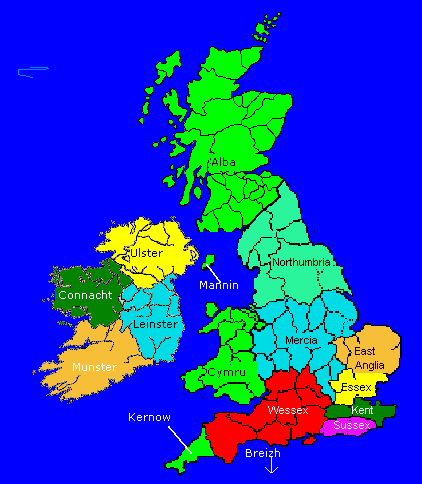
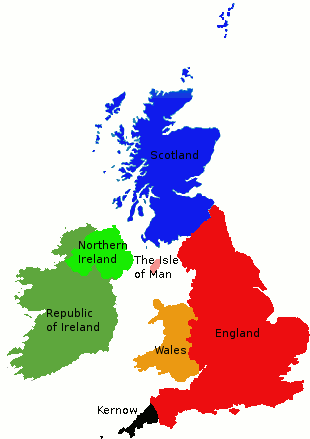




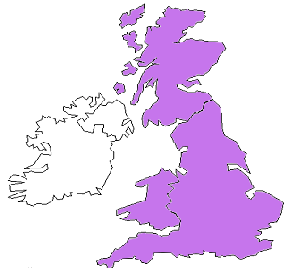 While people get very distracted by Ierne and Albion, there are actually 136 smaller islands off our respective coastlines with populations upon them. There are over 1000 more with no permanent residents at all.
While people get very distracted by Ierne and Albion, there are actually 136 smaller islands off our respective coastlines with populations upon them. There are over 1000 more with no permanent residents at all.
 Despite the name, Geoffrey of Monmouth was probably French rather than Welsh. Around 1136, he became the first person to refer to Great Britain. It was political.
Despite the name, Geoffrey of Monmouth was probably French rather than Welsh. Around 1136, he became the first person to refer to Great Britain. It was political. It was called 'great' to differentiate it from 'little' or 'lesser' Britain. That's Brittany, in France, now. It's populated by those Celts who fled south across the channel, as refugees from the invading Anglo-Saxons.
It was called 'great' to differentiate it from 'little' or 'lesser' Britain. That's Brittany, in France, now. It's populated by those Celts who fled south across the channel, as refugees from the invading Anglo-Saxons.

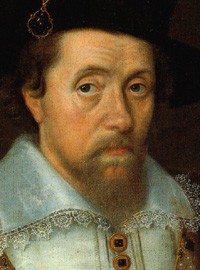 As I hope I've demonstrated, the name Britain (or Great Britain) has been laced with politics ever since the Celts lost the area now covered by England.
As I hope I've demonstrated, the name Britain (or Great Britain) has been laced with politics ever since the Celts lost the area now covered by England. 

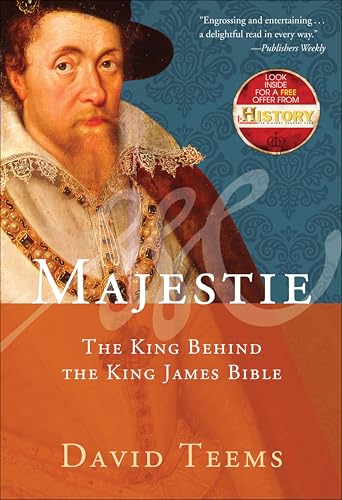
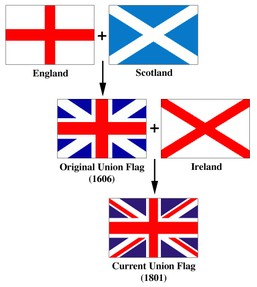 On May 1st 1707, a city-wide riot broke out in Edinburgh. Panicked and furious crowds stormed the parliament buildings, then rampaged through the city. They were looking for one thing, the meeting in which the Act of Union was to be signed.
On May 1st 1707, a city-wide riot broke out in Edinburgh. Panicked and furious crowds stormed the parliament buildings, then rampaged through the city. They were looking for one thing, the meeting in which the Act of Union was to be signed.






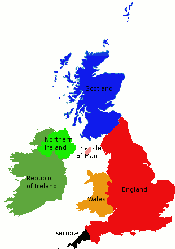

 St Tydecho's Churches in West Waleson 09/03/2014
St Tydecho's Churches in West Waleson 09/03/2014
 Goodies for an Outlander Premiere Partyon 03/06/2015
Goodies for an Outlander Premiere Partyon 03/06/2015
 Holocaust Memorial Day Interview with Rainer Höss, Grandson of Rudolf Architect of Auschwitzon 01/24/2015
Holocaust Memorial Day Interview with Rainer Höss, Grandson of Rudolf Architect of Auschwitzon 01/24/2015
 Romantic Valentine Gifts for an Outlander Fanon 01/16/2015
Romantic Valentine Gifts for an Outlander Fanon 01/16/2015

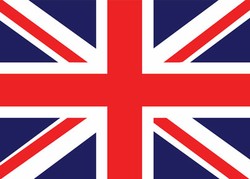
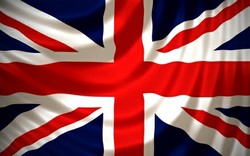
Comments
"The biggest faux pas that you can commit is assuming that anyone on that list is English, except, of course, the English." exactly like the putative Spanish language, which really is called Castillian by all the people from autonomous regions and former colonies countries of Spain, except for those from Castilla province... :)))
In ancient times Prydain was the term for the whole archipelago,including Ireland, but the Romans appropriated it for the island of Albion. So we became Britain and we in our modesty called ourselves Great Britain.
A most valiant attempt to explicate a Gordian Knot of geoculture. However, your native demonyms are mostly incorrect.
I think it's one of the most fascinating What Ifs in history - or at least British history - what would have happened if Harold had won at Hastings? The notion of a Scandinavian Britain is the most likely outcome. Would that have made us all like Yorkshire, or Highland Scotland, or something very different?
The issue of Normanisation is complex. The first Normans to become established in Scotland were those who took service with David in 1138, after the Scottish defeat at Northallerton. They were Normans serving empress Maud, who was in alliance with David. He saw their fighting potential and hired them. Certain leading Scottish familes were from this lot: e.g.Stuart, Bruce, Gordon.
But to some extent Normanisation was the result of geopolitical pressures. Frankish culture began to expand in the late first millenium, fuelled by population increase, which provided the fighting manpower, and the Normans were the most effective fighing force carrying this cultural pressure. They were bound to try expanding into Britain and Ireland, though England could have gone Scandinavian had Hardrada won. Thus when England fell to them, the smaller nations of Wales and Ireland were bound to fall as this Norman culture swelled its domains.
Yes, yes, yes, yes, yes and a hundred times yes. It's this level of divide and conquer which comes through time and time again. In many ways, the worse thing that happened to the Scots was winning Bannockburn, simply because it put the Norman Robert Bruce in charge. He instantly turned Scotland Norman. (Not that Edward II winning would have altered that situation one iota!)
His book emphasises John Seymour's point that the struggle is not between nations but between people and those who would control them. The guilty parties in the clearances were Scottish landowners in league with English mill owners. The victims were the Scottish people.
John Prebble's 'The Highland Clearances' is an amazing book. In fact anything by him is that. He certainly highlighted the divide and conquer in all its murky reality.
Divide and conquer in some cases! The troops who slaughtered the Irish at Vinegar Hill in 1798 were from the Northern Highlands, so when there was unrest in the Northern Highlands about the clearances, the government used Irish troops, the officers reminded them of Vinegar Hill, then let them loose on the Scots. I got this from John Prebble's Book, the Highland Clearances.
It's been years since I last read Oppenheimer. I have his 'Origins of the British' though, so it may be worth a re-read. I did love Francis Pryor's book though, and the documentary that accompanied it.
One of the biggest mistakes anyone could ever make looking back is that the British tribes were one, big, harmonious whole. The entire annals of the British concerns tribes warring against each other. That didn't stop, even when the Anglo-Saxons/Jutes had consolidated most of Britain. There were Irish and Welsh fighting against the Scots at Bannockburn. Most of the army fighting Ui Neill in the Nine Years War was Welsh. Much of the subjugation of the Highland Scots came from the Lowland Scots.
The big shining point about Arthur (or Aurelius, or - to a much, much lesser extent - Maelgwn) was that they managed to unite enough of these tribes to hold back the tide of Saxon invasion. That's why Baddon stands out so much.
Though I admit I'd missed the fact of the Parisii being so friendly with the Angles. I knew the Brigantes were friendlier with the Continent. Cartismandua famously sold out Caradog to the Romans, thus knocking a dent into the Silurian resistance.